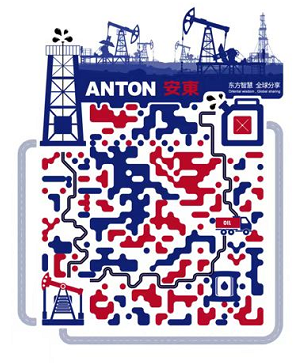Responding to Climate Change
Anton attaches great importance to the challenges brought about by climate change and actively responds to the international community’s focus on climate issues. Referring to the framework recommendations of the Task Force on Climate-related Financial Disclosures (TCFD), the Company systematically advances its climate change management from four dimensions: governance, strategy, risk management, and metrics & targets.
Governance
The Company has established a three-tier organizational structure for climate change, establishing a smooth internalcommunication mechanism to effectively implement work related to climate change response.

Strategy
The Company maintains a close watch on the latest policy dynamics, laws and regulations, technological innovations, and market development trends in low-carbon economic transformation globally and in China. Over the years, the Company has continuously carried out special research, intensively analyzing the opportunities and challenges related to climate change, and incorporating climate change issues into its core strategic planning and daily operational management. Through in-depth identification and assessment of climate risks and opportunities, the Company comprehensively identifies and analyzes the potential impacts of climate change on its operations, and establishes corresponding response strategies based thereon.It seizes the development opportunity of green and low-carbon transformation to promote sustainable development of the enterprise.
Risk Management
Anton has established a systematic process for climate risk identification, assessment, and management. Through comprehensive analysis of various climate risk possibilities and their impacts, researching climate change-related policies, regulations, and market trends, the Company accurately identifies key climate risks that have a significant impact on the Company and develops targeted management plans to address them.
Anton’s Process of Identifying, Assessing and Managing Climate-related Risks

In 2024, we continued to identify and analyze physical risks and transition risks related to the Company’s operations, and formulated corresponding measures in combination with the Company’s strategy and development:

Climate Change-related Opportunities
![]()

Metrics and Targets
Anton actively implements China’s strategic objectives of “peaking carbon emissions and achieving carbon neutrality,” unswervingly promoting the achievement of the strategic objectives of peaking carbon emissions and achieving carbon neutrality. The Company scientifically sets short-term and long-term management objectives for carbon emissions, regularly reviews and updates these objectives, explores and promotes innovative green development models, and steadily advances the Company towards a low-carbon and sustainable direction:

Climate Actions
As a leading oilfield technology service company, Anton is always committed to providing customers with advanced technical solutions, helping them remarkably reduce greenhouse gas emissions during oil and gas exploration and development. Furthermore, the Company continues to advance its own efforts for emission reduction, constantly reducing its greenhouse gas emissions through technological innovation and stringent operation management, and striving to achieve sustainability objectives. In 2024, Anton assisted its customers in reducing greenhouse gas emissions by 145,305.14 tons of carbon dioxide equivalent through professional technical support.
Exploration of Emission Reduction in Anton
To effectively manage carbon emissions in its own operations and fulfill emission reduction objectives, we have established a systematic greenhouse gas emissions management system. By establishing the Greenhouse Gas Emissions Management Measures, the Company closely integrates greenhouse gas emission control indicators with production and operation indicators to implement integrated management. In all aspects of production and operation, Anton strictly implements greenhouse gas emission control measures, covering equipment optimization, process improvement, and other aspects. Besides, the Company regularly organizes training sessions related to climate change to continuously enhance the environmental awareness and management capabilities of team members, ensuring that a high level of professional competence and
execution is maintained in addressing climate change.
In 2024, we continued to implement the “Energy Efficiency Improvement” program, vigorously promoting the use of clean energy and low-energy consumption technologies, as well as digital transformation to aid emission reduction.








